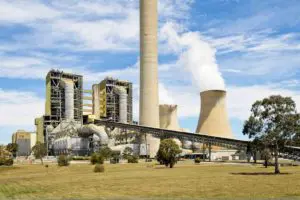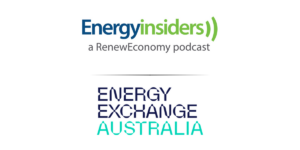Australia’s vehicle emissions standards will be reviewed by the federal government, just weeks after Europe’s ‘Dieselgate’ scandal underscored just how far behind the rest of the developed world Australia was on its clear car policy.
The Turnbull government announced on Saturday that it had set up a Ministerial Forum, chaired by the Minister for Major Projects Paul Fletcher, to examine vehicle emissions standards and testing arrangements.

This would be supported by a working group, which would examine issues including implementation of Euro 6, fuel quality standards, fuel efficiency measures (CO2) for light vehicles, and emission testing arrangements.
“This Ministerial Forum will allow the Minister for the Environment Greg Hunt, the Minister for Resources, Energy and Northern Australia Josh Frydenberg and myself to consult broadly with industry with the aim of reducing harmful emissions on Australian roads and in our cities from motor vehicles,” Fletcher said in a statement on Saturday.
“It is the Australian government’s policy to harmonise our vehicle standards with international standards developed through the United Nations.
“We have recently adopted the United Nations based Euro 5 noxious emissions standards for light and heavy vehicles and are now considering the adoption of Euro 6. We are also working with other countries to improve the vehicle testing arrangements for noxious emissions.”
Of course, vehicle testing standards have become a key issue for policy-makers, globally, since the faith-shaking discovery in September that Volkswagen had been deliberately installing “defeat devices” in its so-called “clean diesel” cars, that automatically switched on and reduced emissions when the car’s software recognised it was being tested by authorities.

As we wrote at the time, “the purpose was to give the impression that the vehicles were a lot cleaner and more efficient than they were in reality.” And to that end it was a great success: disguising emissions up to 40 times above the legal limit.
But while the whole affair served as a regulatory wake-up call for European and US governments, in Australia it served remind us how far behind we lag on emission standards, compared to the EU, the US and others.
As this Conversation article pointed out in early October, “Australia has no regulatory CO2 emission standards to reduce emissions of greenhouse gas emissions from fossil fuels and its impact on climate change.
“This allows car manufacturers and importers to dump their high CO2 emitting vehicles because there are no restrictions.”
In the government’s media release on Saturday, federal environment minister Greg Hunt said the government had a series of programmes and policies already in place to target vehicle emissions, but that this new effort would, quote, continue work on meeting the challenge of reducing them further.
“This includes consideration of the independent Review of the Fuel Quality Standards Act 2000 which will report to the Government in the first half of next year,” Hunt said.
On Sunday, Hunt elaborated on this point, telling the ABC’s Insiders program “we’re moving towards what’s called the Euro 6 standard, tighter emissions standards, cleaner air in our cities – probably a saving of about 75 million tonnes over the coming decade” – a move he described as “evolutionary”.
But unfortunately, it looks like this evolution will take at least two years, with the working group not scheduled to report back on a draft implementation plan for new vehicle emissions measures until the end of March, 2017.
According to the Australian Greens – whose own policy would bring the nation’s fleet to up to the EU 2020 standard by 2023 – this is not good enough.
“For years the Climate Change Authority, experts, air quality campaigners and community members have been calling for mandatory vehicle efficiency and pollution standards that bring us up to speed with the rest of the world,” said the party’s deputy leader and climate spokesperson, Larissa Waters.
“Now the government is telling them to wait for at least another year and a half without any guarantee of a decent mandatory standard.
“Australian cars already guzzle more fuel than other developed nations, and we are at risk of becoming a dumping ground for the world’s dirtiest cars, with our non-existent fuel efficiency standards putting us way behind Europe, the USA, China, India and Japan.
“Reducing vehicle emissions is the lowest cost way of cutting climate pollution. We need more than supportive rhetoric from the big parties, we need this fast-tracked and in place for the next financial year,” Senator Water said.









